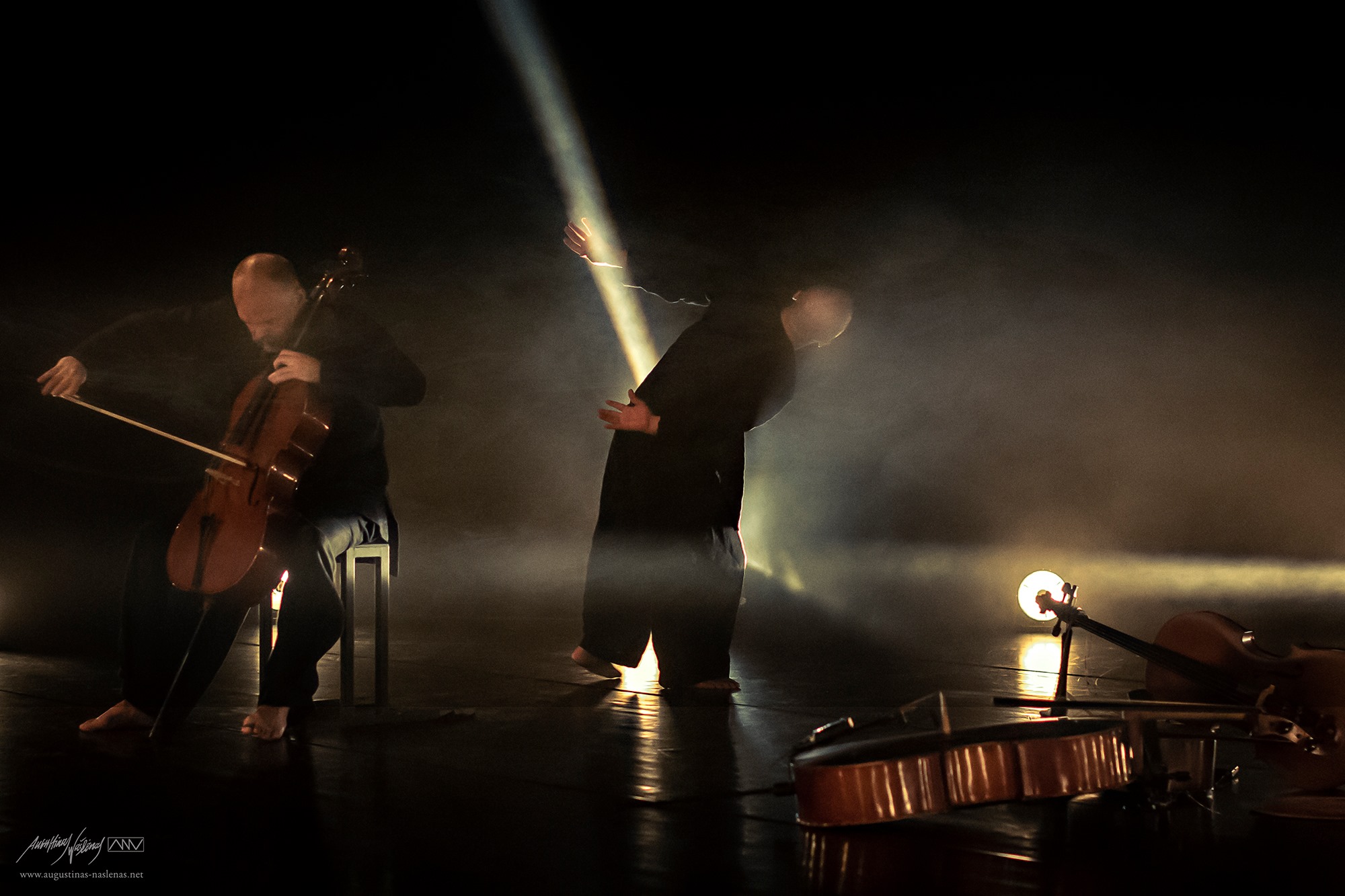Oneiro
The creator of the play "Oneiro" was also inspired not only by the deep, mathematical music, but also by the name, which indicates the state of the limbo - an intermediate stage between the end and what is afterwards.






Idea, dramaturgy, directing: Mindaugas Bačkus, Kenzo Kusuda, Agnija Šeiko;
Performers: Mindaugas Bačkus, Kenzo Kusuda;
Costume Designer: Sandra Straukaitė;
Light Designer: Justas Bø;
Music: According to David Lang, “The World to Come”;
Light design and experiments Justas Bø